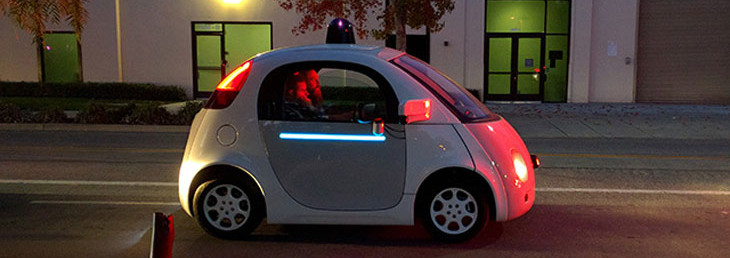Will mighty Google be able to make its self-driving car by itself?

According to a report published by Yahoo last December, Ford and Google are planning to create a joint venture to work together on self-driving cars. Yahoo’s report said the partnership would be formally announced at CES in January. It was not. To date, neither company has confirmed the deal. More recently, a new report from The Wall Street Journal, citing “people familiar with the plans”, reported that the companies are still considering such a partnership.
The deal may or may not finally happen. The exact details of the partnership are unclear, anyway. But we do not care, because it is not important if it will finally happen or not and how exactly it will be implemented if the deal is closed. The important thing for us is that this kind of partnership, unthinkable few years ago, makes perfect sense today.
If not Google and Ford, sooner or later some other similar players will do (Apple or GM, for instance). Automakers and tech companies are bound for teaming up in complex ways. They are already doing it, as cars become as much software as hardware. Self-driving cars are in a much higher level of complexity and disruption than just merely adding bits of software here and there. And, as we know, complexity is very good at spurring collaboration and co-innovation.
Do they need each other?
Currently, neither Google nor Ford need each other. But by working together they could benefit from many very important competitive edges in a future (and potentially very lucrative) market set to disrupt mobility as we have known since the beginning of the automobile industry.
Google’s self-driving car program has turned the company into the undisputed leader in a transformational technology that will fundamentally reshape the way we get around in the decades to come. But, it is also true that Google lacks the traditional auto industry infrastructure to manufacture cars at the same speed that it produces software and services.
Taking the next step in the car business is not so straightforward, and Ford has much to offer a company like Google. Making a car is something difficult enough to just not being feasible to be outsourced the same way you can outsource making a cell phone, even a smart one.
Both Ford and Google have already started expanding to each other’s territories. A year ago, the carmaker opened a Silicon Valley research center in Palo Alto. On the other hand, Google has expanded its Detroit-area offices this year. Detroit is not just where Ford, GM, and Fiat Chrysler are headquartered. It is also the location for many of the industry’s tier one suppliers and, more importantly, universities that specialize in automotive research.
Who wins?
By partnering with Ford (or any other main carmaker), Google could gain complex manufacturing, quality, safety, and environmental regulation know-how that dates back to the invention of the assembly line, not forgetting an expansive dealer and sales networks already in place (some analysts consider Tesla’s effort to work outside the traditional dealer model has punished its ability to sell more of its cars).
For now, self-driving has been a research initiative for Google with no demonstrative profit. On the other hand, Ford and other automakers might be able to build autonomous cars, but could lack the fluid organizational structure necessary to find the best business models for them. The main gain for Ford (or any other carmaker) from a company like Google is the lean versatility to operate at the pace of a tech company.
But, as we know, no co-innovation partnership can succeed if it is not a win-win collaboration effort. It’s highly unlikely Ford will be happy providing nothing but wheels, motors, and seats. A partnership where Ford is just making car components and Google is making the brains would turn into a shortcut to irrelevance for the carmaker.
Therefore, it’s unlike a collaboration in those terms to happen. For the new collaborative context to success, this can’t be about losers and winners. This has been the case traditionally for the last couple of centuries, and maybe that’s the reason why still some analyst and journalists commenting on the possible deal can’t help but thinking somebody has to win (and therefore somebody has to lose).
